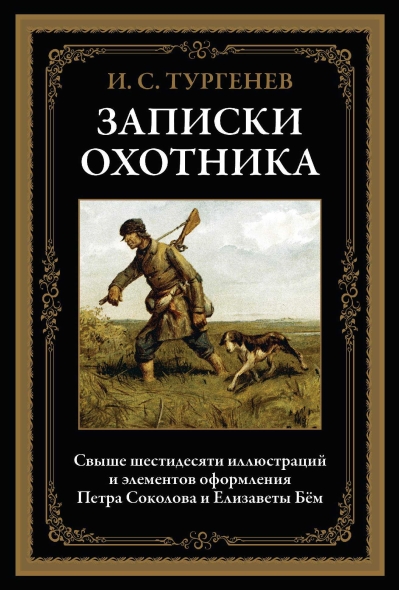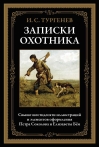Hunter's Notes
14.99 €
Out of stock
In September 1846, the literary and socio-political journal Sovremennik, founded by A. S. Pushkin, changed owners - Pushkin's successor Pyotr Aleksandrovich Pletnev leased the journal to Nikolai Alekseevich Nekrasov and Ivan Ivanovich Panayev. The new editorial board, seeking to attract the best literary forces of those years, appealed, among other things, to Ivan Sergeyevich Turgenev - with a request to provide fresh material for the "Blends" department.
Turgenev, who had spent the summer and part of the fall of 1846 at his mother's estate Spasskoye Lutovinovo and regularly went hunting accompanied by the local gamekeeper Afanasy Alifanov, readily responded to the publishers' request and wrote for the first issue of the renewed journal the story "Khorj and Kalinych," published in the January 1847 issue with the subtitle "From the Hunter's Notes" proposed by Panayev. Thus saw the light of the first of a cycle of stories and essays, about which later Saltykov-Shchedrin will say that they "laid the foundation for a whole literature, having as its object the people and their needs" and, together with other works of Turgenev, significantly raised "the moral and mental level of the Russian intelligentsia. In the middle of the XIX century, the struggle for the elimination of serfdom was in the center of attention of the advanced Russian thought; Turgenev's truthful portrayal of the life of modern Russian society, especially its social strata, appeared as timely as possible and made a deep impression on all concerned people. For Turgenev himself, not satisfied with his own writing in those years, the unexpected success was a turning point in the creative biography, gave confidence in their own strength and caused an irrepressible desire to continue working. In January 1847 Ivan Sergeevich went abroad for three and a half years; it was abroad, in the years of European anti-feudal and national liberation revolutions of 1848-1849, and were written almost all the subsequent works of the cycle. As they were ready, they continued to be published in "Sovremennik", and in 1852, twenty-two of them under the general title "Notes of a Hunter" (three more stories will be added to the collection later) finally came out in a separate book. Vladimir Lvov, an employee of the Moscow Censorship Committee, who authorized the printing of the collection, was dismissed, but the book went on sale. The bans on the publication of "Notes of a Hunter" were finally lifted several years later, when the government finally decided to proceed with the abolition of serfdom.
Turgenev, who had spent the summer and part of the fall of 1846 at his mother's estate Spasskoye Lutovinovo and regularly went hunting accompanied by the local gamekeeper Afanasy Alifanov, readily responded to the publishers' request and wrote for the first issue of the renewed journal the story "Khorj and Kalinych," published in the January 1847 issue with the subtitle "From the Hunter's Notes" proposed by Panayev. Thus saw the light of the first of a cycle of stories and essays, about which later Saltykov-Shchedrin will say that they "laid the foundation for a whole literature, having as its object the people and their needs" and, together with other works of Turgenev, significantly raised "the moral and mental level of the Russian intelligentsia. In the middle of the XIX century, the struggle for the elimination of serfdom was in the center of attention of the advanced Russian thought; Turgenev's truthful portrayal of the life of modern Russian society, especially its social strata, appeared as timely as possible and made a deep impression on all concerned people. For Turgenev himself, not satisfied with his own writing in those years, the unexpected success was a turning point in the creative biography, gave confidence in their own strength and caused an irrepressible desire to continue working. In January 1847 Ivan Sergeevich went abroad for three and a half years; it was abroad, in the years of European anti-feudal and national liberation revolutions of 1848-1849, and were written almost all the subsequent works of the cycle. As they were ready, they continued to be published in "Sovremennik", and in 1852, twenty-two of them under the general title "Notes of a Hunter" (three more stories will be added to the collection later) finally came out in a separate book. Vladimir Lvov, an employee of the Moscow Censorship Committee, who authorized the printing of the collection, was dismissed, but the book went on sale. The bans on the publication of "Notes of a Hunter" were finally lifted several years later, when the government finally decided to proceed with the abolition of serfdom.
See also:
- All books by the publisher
- All books by the author
- All books in the series Library of World Literature


































